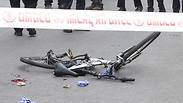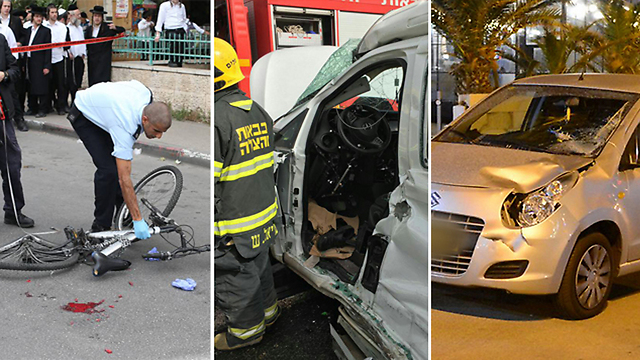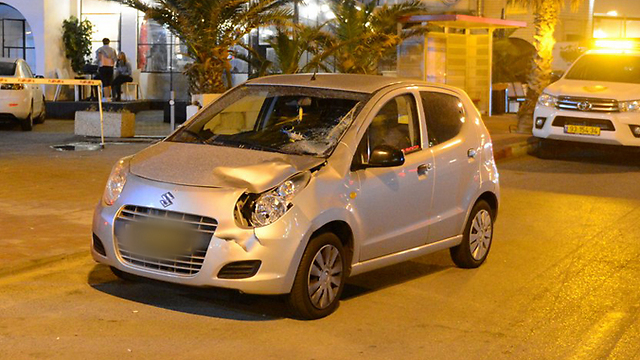
An average of one person per day has been killed on Israeli roads since the beginning of 2016, according to a new report released earlier this week.
88 people have died so far since January 1, with 10 people killed in the first 10 days of April alone. By comparison, 26 people were killed in January, 33 in February, and 19 in March.
According to the National Road Safety Authority, there has been an increase in the number of traffic fatalities in the past three years. There were 290 deaths in 2012, 309 in 2013, 319 in 2014, and 356 in 2015.
Three people were killed in the space of several hours on Monday: Shimon Abromov, 10, who was killed after being hit by a bus while riding his bike in Jerusalem; Bader Hussein, 46, who was hit by a truck near Golani Junction in the Galilee, and a 76 year old woman who was killed in a hit and run in Ashdod.

Shmuel Avov, CEO of the Or Yarok (Green Light) Foundation, which promotes safe conduct on the road for both passengers and drivers, criticizes the government for failing to reach its goals in bringing the number of traffic fatalities down.
"The government talks about the importance of a decline in traffic fatalities, yet there has been an increase in their number over the past three years. The main reason for this is the drastic reduction of traffic police squad cars. The number of police officers has gone down 50 percent, and the budget has been reduced by 60 percent since 2009."
Avov claims that the government pledged to install 300 speed cameras throughout the country, but has so far only installed 100.
"There's a concentration of accidents and traffic deaths on certain dangerous roads, and it's at these places where the speed cameras and the traffic police need to be concentrated," he said. "When the Traffic Police has not resources, then you end up with one squad car for a 100 kilometer stretch of road. This has no equivalent among modern nations, the likes of whom Israel purports to be."
Azov explains that the reason for all of the traffic accidents isn't because of bad luck, but because the government isn't investing enough into traffic safety. In 2007, the government approved a half billion shekels a year to fight traffic deaths. By 2016, that number has been reduced by over half to 220 million shekels, and is getting smaller every year.
"Israel is in second place in the world in terms of number of children killed in traffic accidents," Azov further stated. "We can save them. If every child learned road safety, the number of these accidents would fall drastically. However, only a third of students have any sort of road safety lessons."
In a special discussion on the fight against traffic deaths held two weeks ago, Public Security Minister Gilad Erdan explained that the number of traffic police officers will double within a year, especially once the police is separated from the National Road Safety Authority. In addition to this, the Minister noted that he has instructed the relevant authorities to establish a special enforcement unit which will focus on safety as it relates to heavy vehicles, such as busses and trucks.
The discussion also highlighted cuts at the Road Safety Authority, with Erdan telling those present that "the traffic directorate works with its hands tied. It’s unacceptable that the operating budget of the Authority is determined by another governing body, one that has but (the Auhority’s) budget down to a ridiculous level over the years.”
Noam (Dabul) Dvir, Roi Yanovsky, Hillel Posek, and Yael Freidson contributed to this report

















